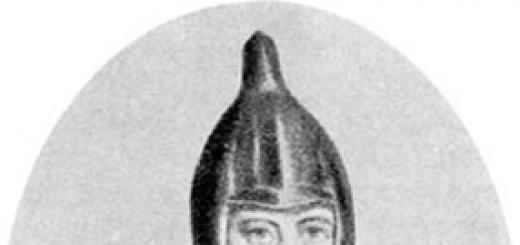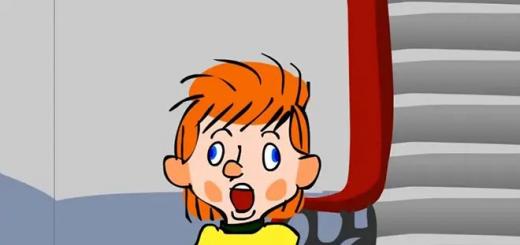This list of negative character traits is necessary for the analysis of a person. It will allow you to identify unique features in yourself, determine the consequences of their manifestation, as well as ways to correct undesirable behavior that is not perceived by society.
Classification of personality characteristics
The individual is known and studied by his innate properties. This concept refers to stable phenomena that characterize it not only psychologically, but also emotionally.
This list includes:
- Temperament - individual signs associated with varieties of nervous functioning. It is he who is the "foundation" of human development.
- Character - acquired, permanent qualities that determine a person's behavior with others and reality.
- Abilities are the skills and abilities that are the main point for achieving success in a certain activity.
- Direction - a set of motivations, motives and aspirations to get what you want.
All characteristics are divided into positive and negative. You need to know them in order to correctly analyze your essence, as well as those around you, to start working on your shortcomings. However, it should be remembered that such a division is conditional and is determined by the prevailing foundations in society, a personal sense of morality and morality.
List of negative qualities and bad character traits of a person
Daria Milay will gladly help everyone to know their own "I" and develop further actions to work on themselves, for this you should sign up for. In the meantime, here is a short list of undesirable properties found in humans.
Authoritarianism
Leadership, the desire to remain in charge of everything, while ignoring the needs of others. Such an individual implicitly or explicitly requires submission and discipline, not taking into account the opinions of others. Any rejection is taken lightly, and compromises are not taken into account.
Aggressiveness
Conflict, the desire to evoke emotions in the interlocutor with the help of a raised tone, provocations and insults. In childhood, such a trait is considered mandatory, as it develops in the child the ability to protect their own interests. However, in adults it is attributed to the negative, interferes with beneficial interaction in society.
gambling
Unlike a goal-oriented person, a gambler tries to achieve his goal, regardless of the level of risk, ignoring other people's views and arguments. On his way, he spends much more effort and money than he will gain by getting what he wants. Often this trait leads to unpleasant situations, including loss of health or finances.
Greed
Painful attraction to profit in various situations. Only the acquisition of goods at any cost gives positive feelings to such a person. At the same time, the duration of joy is rather short-lived.
apathy
Emotional indifference to all manifestations of life, irritants. The reason for this is character traits or a protective function in relation to stressful situations. However, this quality becomes an obstacle to the implementation of even the simplest plans.
carelessness
Negligence in the performance of duties due to unwillingness to comply with the established algorithm or misunderstanding how to do it at the lowest cost. To a greater extent, it is inherent in girls who have recently escaped from under the wing of their parents.
Indifference
A state of disinterest in what is happening, people or events. This may be a reaction to stressful situations or the result of poor parenting.
Irresponsibility
Refusal to perceive the consequences, lack of desire to take serious steps and make decisions. Such an individual will not solve the problem, hoping that it will disappear by itself.
Facelessness
Such a person does not have personal qualities, therefore, does not stand out from the crowd. She does not arouse interest in the company, talks about boring topics and strongly resists any changes.
Ruthlessness
Another negative characteristic of a person, meaning indifference to the troubles of others. Such an interlocutor will not support a loved one, sympathize or condole. This applies not only to other people, but to all living things.
impudence
Deviation from established norms, swagger and tactlessness in specific situations. A conscious manifestation indicates attempts to attract attention to oneself, and an unconscious manifestation indicates poor upbringing or immaturity.
talkativeness
Being sociable is good, but you need to know when to stop. The pathological desire to insert one's word in any conversation, without thinking about the relevance, the content of the discussion, is bad. The main goal of the talker is to make contact, and not to obtain new information.
Windiness
The manifestation of irresponsibility. Such a person does not keep his promises, does not take into account the interests of others and does not know how to achieve goals. He constantly changes companies, is not limited to the rules of conduct established in society, quickly fades away to new activities.
lust for power
The love of control over everything, the demand for unquestioning obedience and the desire to have unlimited power in the hands. The power-hungry individual enjoys his exalted position over others, especially when he is asked for help.
Suggestibility
Lack of own point of view. This is a craving for imposed principles and behavior on a subconscious level. But here the rule of "golden mean" applies. Since a reduced level leads to poor learning.
Vulgarity
Lack of a sense of balance between eccentricity and vulgarity in interaction and actions. This may relate to such aspects as the choice of clothing or life guidelines.
stupidity
Inability to draw logical conclusions from phenomena. Such a negative personality trait is manifested in a tendency to accept populist statements and pseudoscientific phrases as the ultimate truth, without subjecting them to critical analysis.
Pride
The proud individual is confident in his exclusivity and convinced of the insignificance of others. He does not forgive other people's mistakes, denies the worthy qualities of others. The reason is degradation due to diseases, immaturity in combination with a high position.
Coarseness
Deviation of politeness and delicacy in conversation and actions. This is a reluctance to adhere to an acceptable format of communication, manifested in obscene language, insults and a raised voice.
Greed, avarice
The desire to minimize costs in any situation, even if it threatens with loss of health or is contrary to common sense. A greedy person may refuse to take out the trash, get rid of rubbish, ignore the requests of loved ones if they relate to material expenses.
Cruelty
This is one of the biggest character flaws on our list. It means the desire to cause discomfort and misfortune to others for the sake of satisfaction. This impact can be physical or intangible.
Forgetfulness
Inability to remember basic things. It is a consequence of age-related changes, excessive information load or an unpleasant situation that you want to throw out of your head.
Addiction
Pathological desires to obtain satisfaction from the effects of substances or specific actions. This can harm health or relationships with people, hit hard on the pocket, or become the result of a crime.
Envy
Inability to be satisfied with one's own blessings and abilities. Such a person constantly looks at others, compares his values with theirs, lives according to the principle “others have better and tastier”.
Complexity
Low self-esteem and fixation on their own shortcomings. A notorious person puts himself a step lower, is embarrassed by his appearance and actions, and because of this, cannot fully reveal his potential.
boredom
A bad habit of annoying with moralizing, touching on the same topic in a conversation, regardless of the lack of interest of the interlocutors. This tendency originates in the love of endless discussions on any subject.
Anger
Another negative quality of a person’s character on our list, indicating dissatisfaction and living in uncomfortable conditions. The appearance of this feeling must be carefully monitored, as it often pushes to break the law.
pampered
A habit that is caused by a lack of education. Such a person requires the immediate fulfillment of his desires, not taking into account the possibilities and making claims.
Laziness
The desire to find comfort at the expense of someone else's work, refusal to make efforts to meet needs. A lazy person loves to waste his personal time and do nothing for days on end.
deceitfulness
Issuance of deliberately false information for the purpose of slander. Inherent in people with low self-esteem who try to elevate themselves by humiliating others through deceit.
Hypocrisy
Pretense, false declarations of love, sincerity and goodwill towards the interlocutor. This is done in order to benefit by fawning even when experiencing absolutely opposite feelings.
Flattery
The desire to regularly praise the real and imaginary virtues of others for the sake of self-interest and profit. Usually manifested to people with high status. A typical act of a flatterer may be to “whitewash” negative qualities and actions.
Curiosity
Not to be confused with curiosity. A curious individual seeks to know everything about someone else's life, throwing aside all decorum. This is an unhealthy tendency to be aware of what is happening.
Pettiness
Attaching colossal importance to your smallest statements and actions. Sticking out one's insignificant traits against the heroic and important actions of others. In men, it often manifests itself in the form of requirements for expense reports down to a penny.
revenge
Consciously remembering all minor conflicts, offensive words or invented humiliations, in order to later compensate the offender in full. In this case, the time factor is not taken into account here.
Impudence
tactless behavior in society. The impudent one tries to get what he wants by "jumping over the heads" of the others. The characteristic develops due to defects in education, spoilage.
Arrogance
Attitude towards others as subjects of the lowest category due to invented personal advantages or real material security and high position.
Annoyance
Lack of desire or ability to deal with their own difficulties on their own, to relax or have fun. The reason for this may be immaturity or fear of loneliness.
Before proceeding with the classification and enumeration of human character traits, it is necessary to understand what meaning and concept is attached to this term. Translated from Greek, "character" means a difference, sign or sign. The personality of each person is multifaceted and in each there is an interweaving of a large number of personal properties that determine the behavior of a person in a given situation. What are the character traits?
Classification of personality traits
Conventionally, the main character traits are divided into three main groups.
- the first characterizes emotions;
- the second is will;
- the third is intellect.
There is also a division according to the direction of influence.
- First of all, this is characterized by the attitude to the external environment - society and the surrounding people.
- Secondly, by the attitude towards one's own person;
- In the third - to activity, that is, work and learning.
An emotional group that includes traits such as:
- aggressiveness;
- lethargy;
- artistry;
- irascibility;
- impressionability;
- good nature;
- cheerfulness;
- isolation;
- impulsiveness;
- capriciousness;
- love of love;
- melancholy and others
All of them are formed in early childhood, when the child's psyche undergoes a stage of formation under the influence of many different factors.
Strong-willed character traits are acquired throughout life:
- might;
- masculinity;
- assertiveness;
- resourcefulness;
- obsession;
- discretion;
- pedantry;
- devotion, etc.
The intellectual group includes:
- insight;
- reasonableness;
- prudence;
- independence;
- smartness;
- intelligence;
- wholeness, etc.
Of decisive importance here is the natural predisposition, which is influenced by hereditary genes and temperament.
However, the environment of the child cannot be discounted: it would be more correct to say that it plays the same role in the formation of the personality, as well as what is laid down by nature.
The kid grows, gains experience of interaction with the outside world and a set of positive and negative personality traits. This process continues throughout life and the list of existing character traits is constantly updated with new personality traits. And if at first this process occurs unconsciously, reflexively, then later, when a person is aware of his actions, he can already make a choice. This conscious choice opens up opportunities for character transformation, that is, personal growth.
Basic personality traits
To date, the list of character traits consists of several hundred different definitions.
Their most different combinations can be found in the same person. But in general, the personal properties that exist today are divided into positive and negative.
However, it is impossible to say with absolute certainty that this is a bad character trait, and this is a good one.
For example, adventurism can be called both a negative trait and a positive one, depending on what effect it has on human behavior.
If he is excessively and thoughtlessly carried away by various adventures of an incomprehensible nature, then this, most likely, will not bring him to good.
The healthy adventurism inherent in a successful businessman allows him to move forward, invest in promising projects and prosper. Or, for example, envy. Everyone will say that this trait is extremely negative.
But psychologists say that it is the engine of progress, forcing people to strive forward and achieve more than others have. In most cases, it is worth talking about certain sets of properties that, depending on the current situation, can have a greater impact on a person. But from a social and moral point of view, they can all be divided into positive and negative.
Negative character traits
Here are some of them:
The negative qualities of a person include rudeness, boasting, familiarity, gloom, vanity, obstinacy, bitchiness, arrogance, licentiousness, etc.
List of positive personality traits
Here are some of them:
The positive qualities of a person include meekness, sincerity, caring, gullibility, restraint, politeness, nobility, accuracy, etc.
How many people, so many characters, and it is impossible to predict a person's behavior in a certain situation, even knowing him well. Throughout life, you can cultivate positive traits in yourself and try to downplay the power of negative ones, but few can do this.
Only those who are ready to grow spiritually are able to change themselves and their lives for the better.
The character of each person is a combination of positive and negative qualities. Bad personality traits can seriously complicate the life of their owner, as well as his environment. Very often, a person may not even suspect that he has such qualities, and not understand why people around him avoid communicating with him.
Pride, arrogance
These traits are characteristic of people who feel their superiority, in their opinion, over other people. Excessive ambition and self-confidence give rise to such character traits. Ambition can come into conflict with real opportunities. In this case, a person can humiliate other people, thereby asserting himself at their expense.
Despotism, cruelty
The desire to control and manage, to subjugate other people, often there are elements of cruelty. As a rule, these negative character traits originate from childhood, when a person was subjected to humiliation and cruelty by parents or close people. Angry at the whole world, he transfers cruelty to the people around him.
Irritability, irascibility
Like all the rest, these qualities have an extremely negative impact on their owner, have a destructive effect on the human psyche. Character imbalance is often the result of neurological and mental disorders and needs to be corrected.
Judgment, criticism
Such character traits are manifested in constant discontent, the desire to criticize and condemn everything around: other people, the government, the country, the world around. People who constantly express condemnation show little tolerance for themselves. The hidden cause of dissatisfaction with the world and oneself is often the following quality.
Envy
The tendency to envy arises in people who want to have something in their lives, but are faced with the inability to have it. Underestimating one's own abilities, while at the same time observing the success of others, can develop this negative quality.
Pessimism, weakness
Pessimism and weakness negative character traits, causing a negative vision of a person around the world. Subject to this perception are people with low self-esteem, insecure. Weakness of will is a consequence of excessive love and overprotection by parents in childhood, which does not allow the child to be independent.
Greed, avarice
The reason for greed in people can be a family memory of hard times, material deprivation in childhood. In this case, there is an excessive attachment to material and financial values, dependence on them, the desire to accumulate them more and more.
Irresponsibility, deceit
Individuals who do not take responsibility for their words, promises and deeds completely lose people's trust over time. Irresponsibility is often accompanied by lies. These negative character traits are frequent companions of each other. The reasons for lying are the fear of being judged, punished, the desire to embellish one's abilities.
These are just some of the bad traits of a person’s character that can overshadow all his positive qualities. Often such traits are rooted in childhood: dislike or overprotection, inattention of parents to children, errors in education can become the basis for the development of such manifestations of character. " Everyone has their own demons..."- sounds in one modern song. It is very important to identify these "demons", accept their presence and begin work on neutralization.
Features of behavior, communication, attitudes towards people, objects, work, things show the character traits that an individual possesses. According to their totality, an opinion about a person is determined. Such clichés as "the soul of the company", "bore", "pessimist", "cynic" are the result of an assessment of a person's character traits. Understanding how character is structured helps in building relationships. And this applies to both their own qualities and others.
Human character traits: classification.
2. Other people
- Closeness-sociability. It shows the openness of a person, his looseness, how easy it is for him to make acquaintances, how he feels in a new company, team.
- truthfulness-falsity. Pathological liars lie even in trifles, hide the truth, easily betray. There are people who embellish reality, most often they do it because reality seems boring or not bright enough to them.
- Independence-conformity. This quality shows how a person. Whether he relies on his experience, knowledge, opinion, or follows someone's lead and it is easy to suppress him.
- Rudeness-politeness. Anger, inner feelings make a person rude. Such people are rude in queues, public transport, disrespectful to subordinates. Politeness, although it refers to positive character traits, can have a selfish background. It can also be an attempt to avoid confrontation.
3 things
- neatness-slovenliness. Creative mess or meticulous cleanliness in the house can show how neat a person is. You can also characterize it by its appearance. Sloppy people often arouse antipathy, and there are not always those who want to see a broad soul behind external absurdity.
- thrift-negligence. You can evaluate a person by his attitude to the accumulated property, borrowed items. Although this trait of a person ended up in the material group, it can also manifest itself in relation to people.
- greed-generosity. To be called generous, it is not necessary to be a philanthropist or give the last. At the same time, excessive generosity is sometimes a sign of irresponsibility or an attempt to "buy" someone else's favor. Greed is expressed not only in relation to other people, but also to oneself, when a person, out of fear of being left without money, saves even on trifles.
4. Self
- exactingness. When this personality trait is clearly expressed, two extremes appear. A person who is demanding of himself is often just as strict with others. He lives by the principle "I could, so others can." He may not be tolerant of other people's weaknesses, not realizing that each is individual. The second extreme is built on uncertainty. A person tortures himself, considering himself insufficiently perfect. A striking example is workaholism.
- Self-criticism. A person who knows how to criticize himself has a healthy. Understanding, accepting and analyzing your achievements and defeats helps in the formation of a strong personality. When the balance is disturbed, either self-blame is observed.
- Modesty. It must be understood that modesty and are different concepts. The first is based on the value system instilled during education. The second is a call to development. In a normal state, modesty is manifested in moderation, calmness, knowledge of the measure in words, expression of emotions, financial spending, etc.
- Egoism and egocentrism. Similar concepts, but the feature here is egoism, but egocentrism is a way of thinking. think only of themselves, but use others for their own purposes. Egocentrics are often misanthropes and do not need others, believing that no one is worthy of them.
- Self-esteem. Shows how a person feels internally. Outwardly, it is expressed in a high assessment of their rights and social value.
Assessment of personality and types of characters.
In addition to the main character traits that are formed in the system of relations, psychologists also distinguish other areas:
- Intellectual. Resourcefulness, curiosity, frivolity, practicality.
- Emotional. Passion, sentimentality, impressionability, irascibility, cheerfulness.
- Strong-willed. Courage, perseverance, determination.
- Moral. Fairness, responsiveness, .
There are motivational traits-goals that drive a personality, determine its guidelines. As well as instrumental traits-methods, they show exactly what methods the desired will be achieved. So, for example, a girl may appear when she persistently and proactively seeks her lover.
Gordon Allport put forward a theory about what character traits are. The psychologist divided them into the following types:
- dominant. They determine the behavior of the individual as a whole, regardless of the sphere, and at the same time influence other qualities or even overlap them. For example, kindness or greed.
- Ordinary. They are also expressed in all . These include, for example, humanity.
- Minor. They do not particularly affect anything, often stemming from other traits. For example, diligence.
There are typical and individual personality traits. Typical ones are easy to group, noticing one of the dominant qualities or a few minor ones, you can “draw” a personal portrait as a whole, determine the type of character. This helps to predict actions, better understand a person. So, for example, if an individual has responsiveness, then most likely he will come to the rescue in a difficult situation, support, listen.
Positive and negative character traits.
Personality is a balance of positive and negative qualities. In this regard, everything is conditional. For example, it is considered a bad property, but some psychologists argue that it can become an incentive to work on yourself or improve your life. The distortion of positive traits, on the contrary, can lead to their transformation into negative qualities. Persistence develops into obsession, initiative into self-centeredness.
It is necessary to highlight the strengths and weaknesses of character, they often have to be remembered when filling out a resume. They terrify many, because it can be difficult to evaluate oneself. Here's a little cheat sheet:
- Weak. Formality, irritability, shyness, impulsiveness, inability to remain silent or say no.
- Strong. Perseverance, sociability, patience, punctuality, organization, determination.
- Negative., vindictiveness, cruelty, parasitism.
- Positive. Kindness, sincerity, optimism, openness, peacefulness.
Character traits are formed in childhood, but at the same time they can change, transform depending on life circumstances. It's never too late to change what you don't like about yourself.
Today we will continue to study the positive traits of a person’s character, by developing which we can become a harmonious personality.
Let me remind you once again that one cannot neglect some character traits in favor of others, since in the long run this will only bring harm. In other words, it is necessary to polish all facets of character without exception, and then one or another trait will help us in every situation of life.
By developing only our “favorite” traits, we use a one-sided approach, avoiding work on ourselves and not using the entire arsenal of character traits that we have.
- Certainty
Set goals in life, no matter the difficulties. Make sure your goals are correct. Ignore distractions. Don't get frustrated if there are a lot of problems to solve.
- industriousness
Invest your time and energy to complete every task you set. Finish all your projects. Do the job right, not just to. Follow the instructions. Concentrate fully on your work. Don't be lazy.
- Vigilance
Be aware of what is happening around you so that you can have the right idea. Keep your eyes and ears open. Recognize and heed warning signals. Tell others about the danger. Stay away from dangerous places yourself.
- Caution
Think before you act. Follow the safety rules. Ask permission. Communicate at the right time.
- Endurance
Gather inner strength to withstand stress. Do your best. Don't be a "bitch". Do not waste your time, energy and talents on meaningless pursuits. Put your whole soul into what you do.
- Flexibility
Change plans or ideas if you really need to. Don't be discouraged when plans change. Respect the decisions of your superiors. Don't be stubborn. Look for the good in change. Be flexible, but don't compromise on what's right.
- Generosity
Manage your resources wisely so you can freely give to those in need. Share with others. Don't expect anything in return for your generosity. Give away your time and talents sometimes. Praise the good things you see in others.
- Tenderness
Take care of others. Show good manners. Reject violence as a solution to your problems. Look for ways to ease the pain of others. Do not get angry and not others. Be a peacemaker.
- Joy
Maintain a good attitude even when you face unpleasant conditions. Try to look for the good in everything. Smile at adversity. Don't give in to discouragement. Don't let your emotions control your mind. Take time out, laugh and sing every day.
- distinction
Understand more deeply the reasons why things happen. Ask questions. Don't judge hastily. Take lessons from your own experience. Don't repeat mistakes. Look for the cause of the problem.
- Humility
Recognize that achieving your success and results also depends on the investment of others in your life. Praise your parents, teachers, teammates and coaches. Don't think more highly of yourself than you should. Take responsibility for all your actions. Try again after every defeat. Give credit to those who made you.
- Gratitude
Let others know through your words and actions that you appreciate them. Show your parents and teachers that you appreciate them. Say and write "thank you". Take care of other people's things. Be content with what you have.
- Honour
Respect leaders and higher authorities. Don't laugh at them. Be considerate of those who lead you. Show loyalty to your superiors. Speak only the truth. Obey not with compulsion, but cheerfully. Make way for the elders. Honor your country.
- Initiative
Recognize and do what needs to be done before you are asked to do it. Do something before talking about it. Don't put off until tomorrow what you can do today. Contribute to the success of the entire team. Be part of the solution, not the problem. Look for ways to help others.
- Hospitality
Use food, shelter and fellowship for the benefit of others. Greet guests and visitors. Make others feel important. Cook for guests. Feel free to share your stuff. Don't expect anything in return.
- Justice
Stand up for what is pure and honest. Respect the rule of law. Stand up for what is right. Never hurt others. Always stay open. Keep your conscience clear.
In the next article, we will finish looking at the positive character traits of a person. Stay with us.










